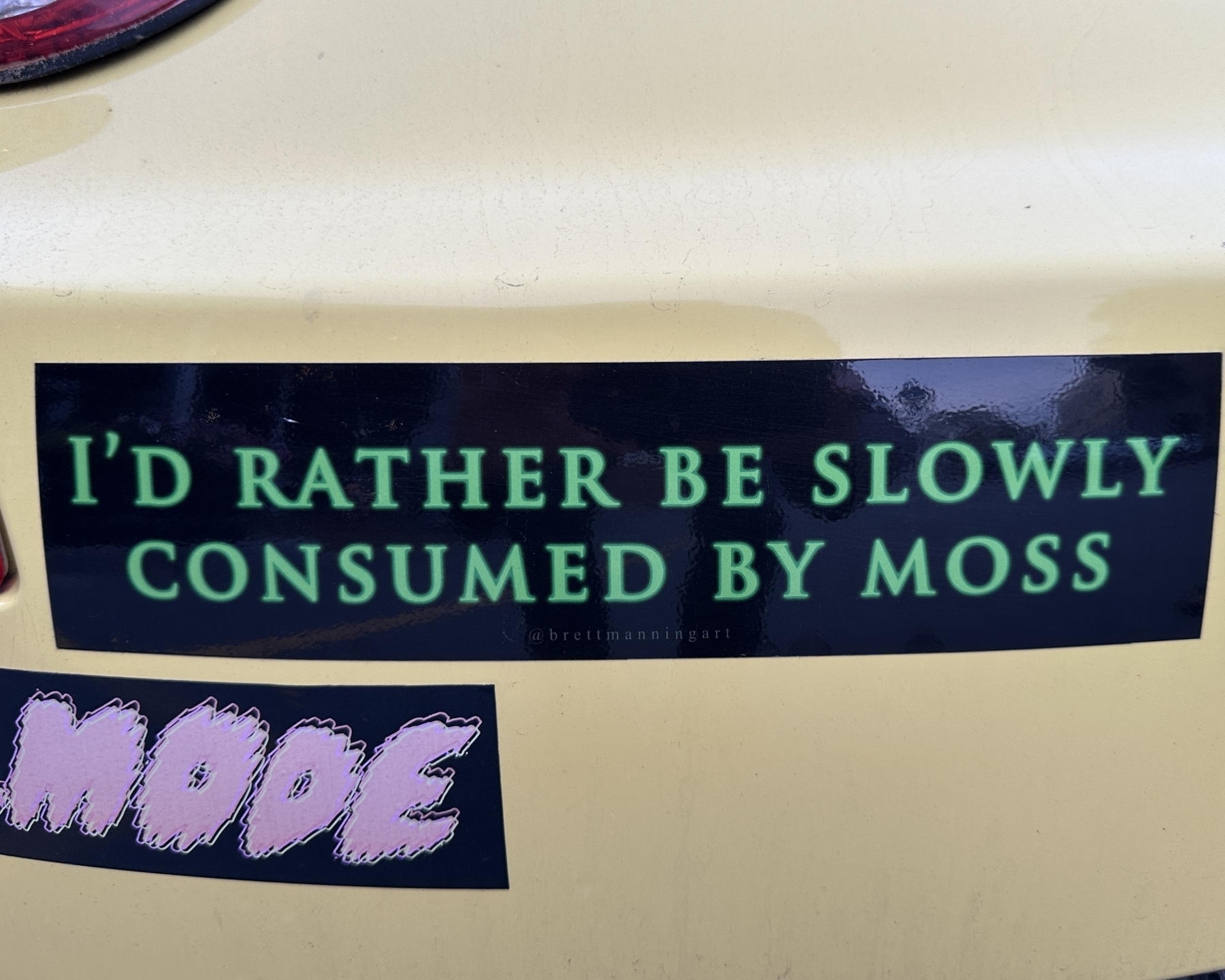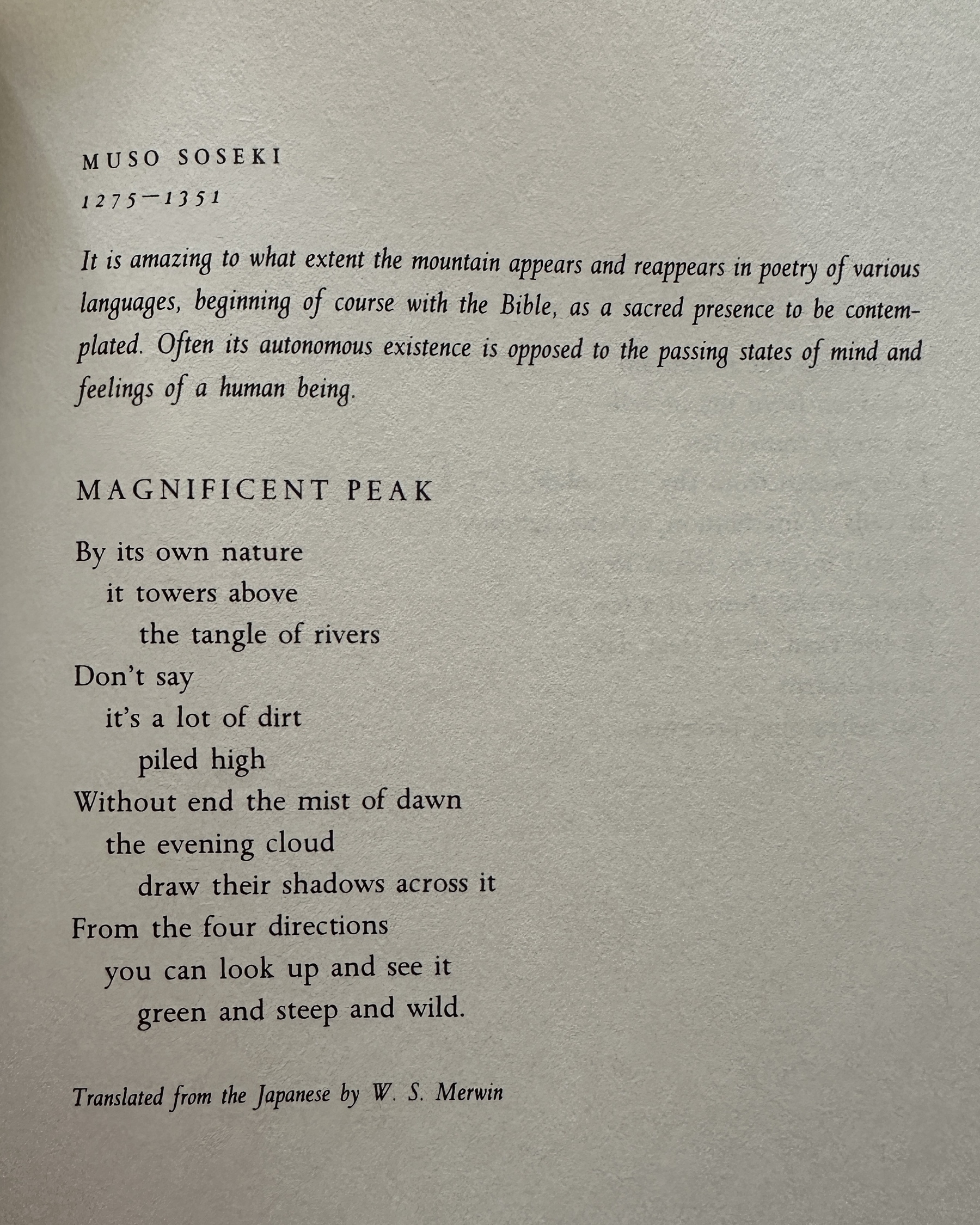A line that stood out today: The necessity of a genuine exchange (not just fatuous “dialogue”) is as important as ever.
Sunset crossing Cod Cove

Bumper sticker on an early 2000s VW Bug and my new response to so… many… things.

“Um, excuse me but your weblog thing seems to be missing something lately…”

I love a good goosebumped coincidence. I was just saying this morning, stirred by this photo from the gifted Clifford Beshers, how one of those lines from movies growing up that pop in my head regularly is from The Big Cat (1949). Several times in the film, when Preston Foster’s character is astonished at something, good or bad, he just says, “Cloud on a mountain.” I can guess well enough, but I’ve never known exactly why he says it.
Later this morning, while Will was splashing around in a bowl of cereal and strawberries, I opened the book of poetry I’ve been slowly going through this summer and this was the very next one (italicized commentary is from Czeslaw Milosz):

Personalized price gouging based on anything from ethnicity to battery life… welcome to the age of surveillance capitalism. (Nothing to see here, folks. Just keep buying.)
Very excited to see Miroslav Volf was this year’s Gifford lecturer, and that For the Life of the World is airing them.